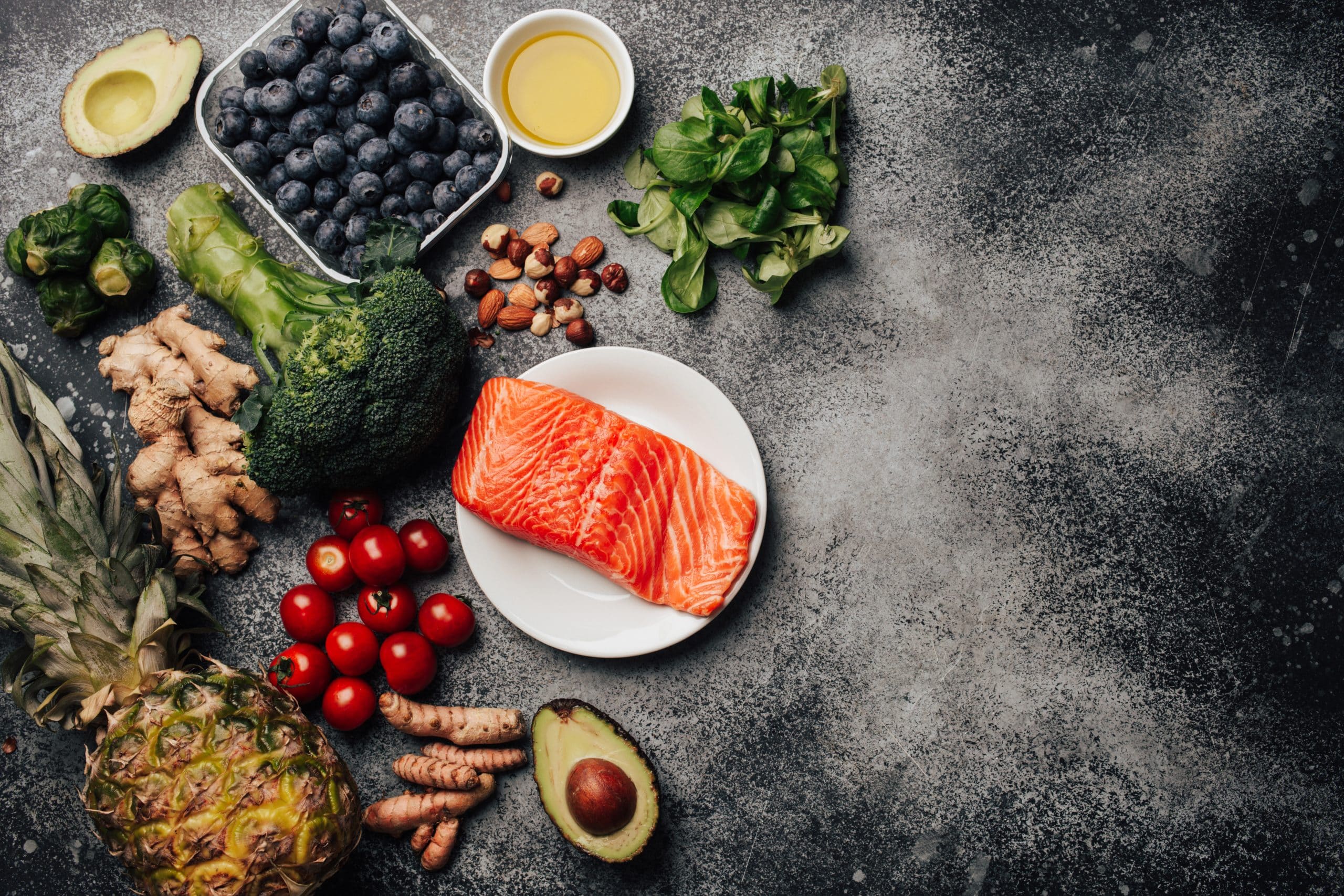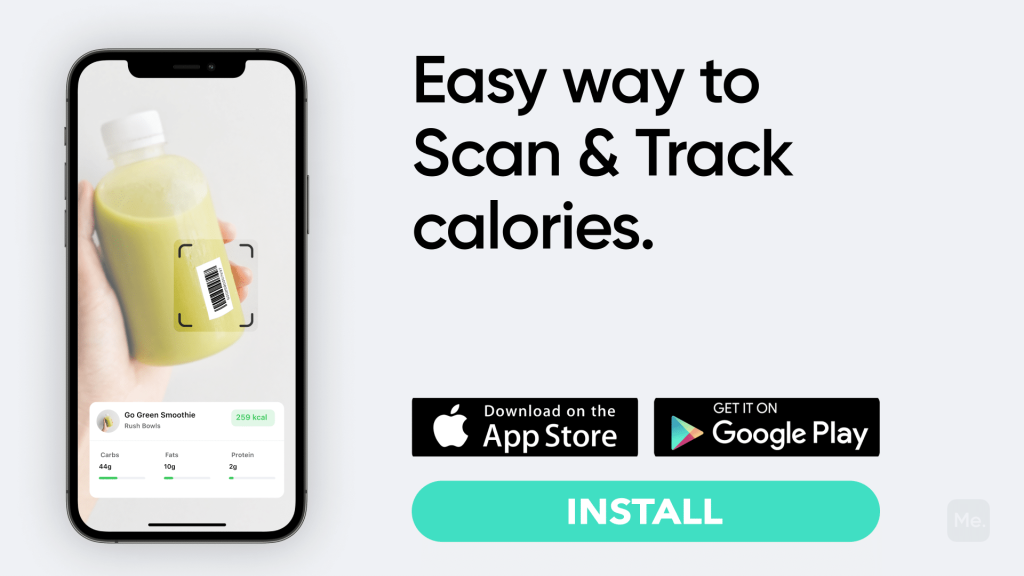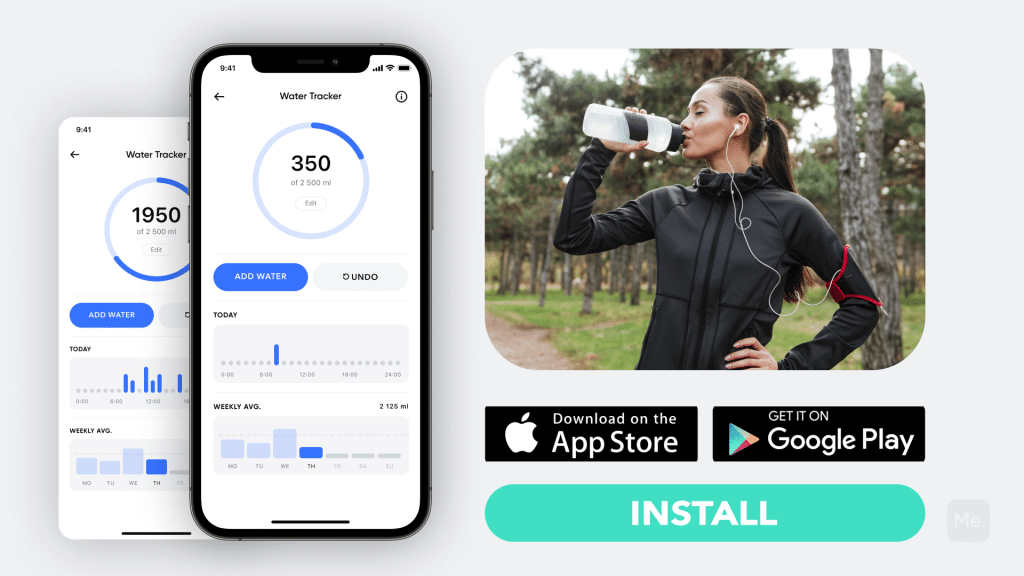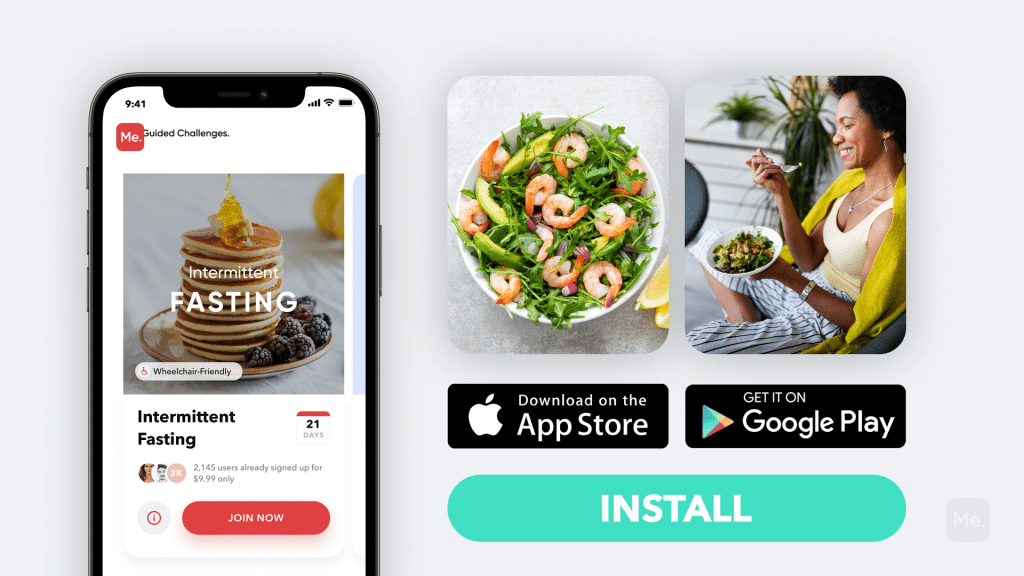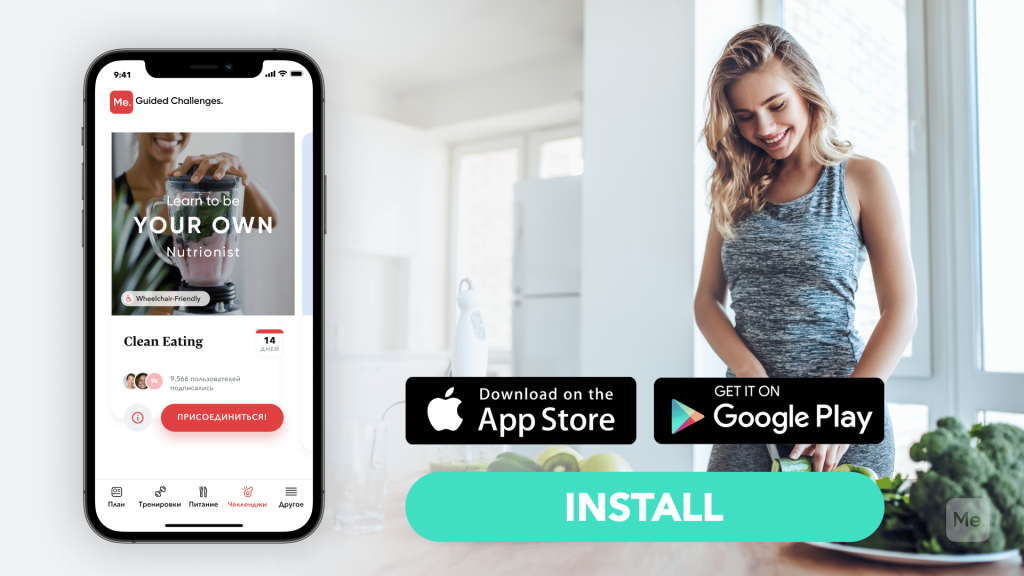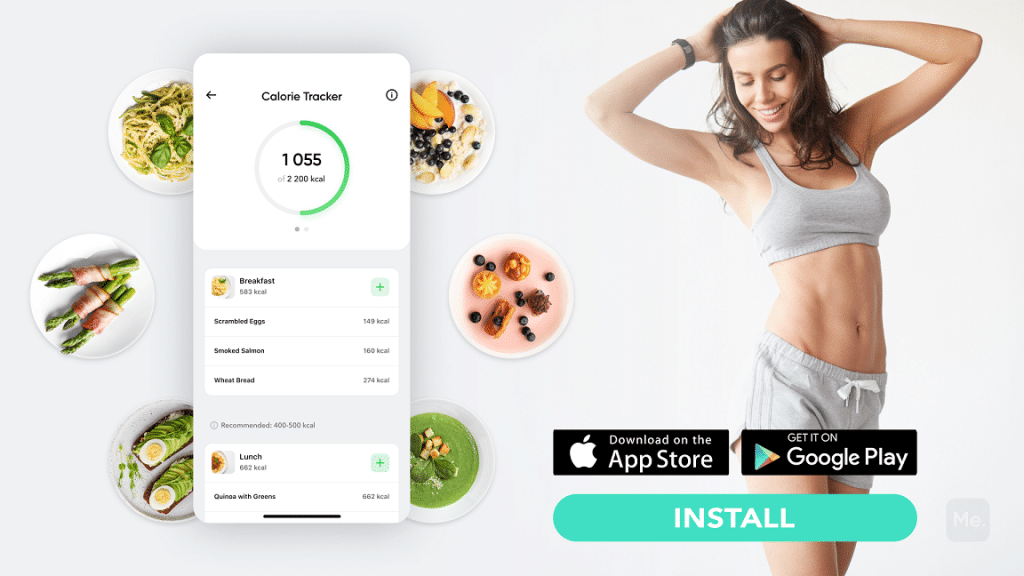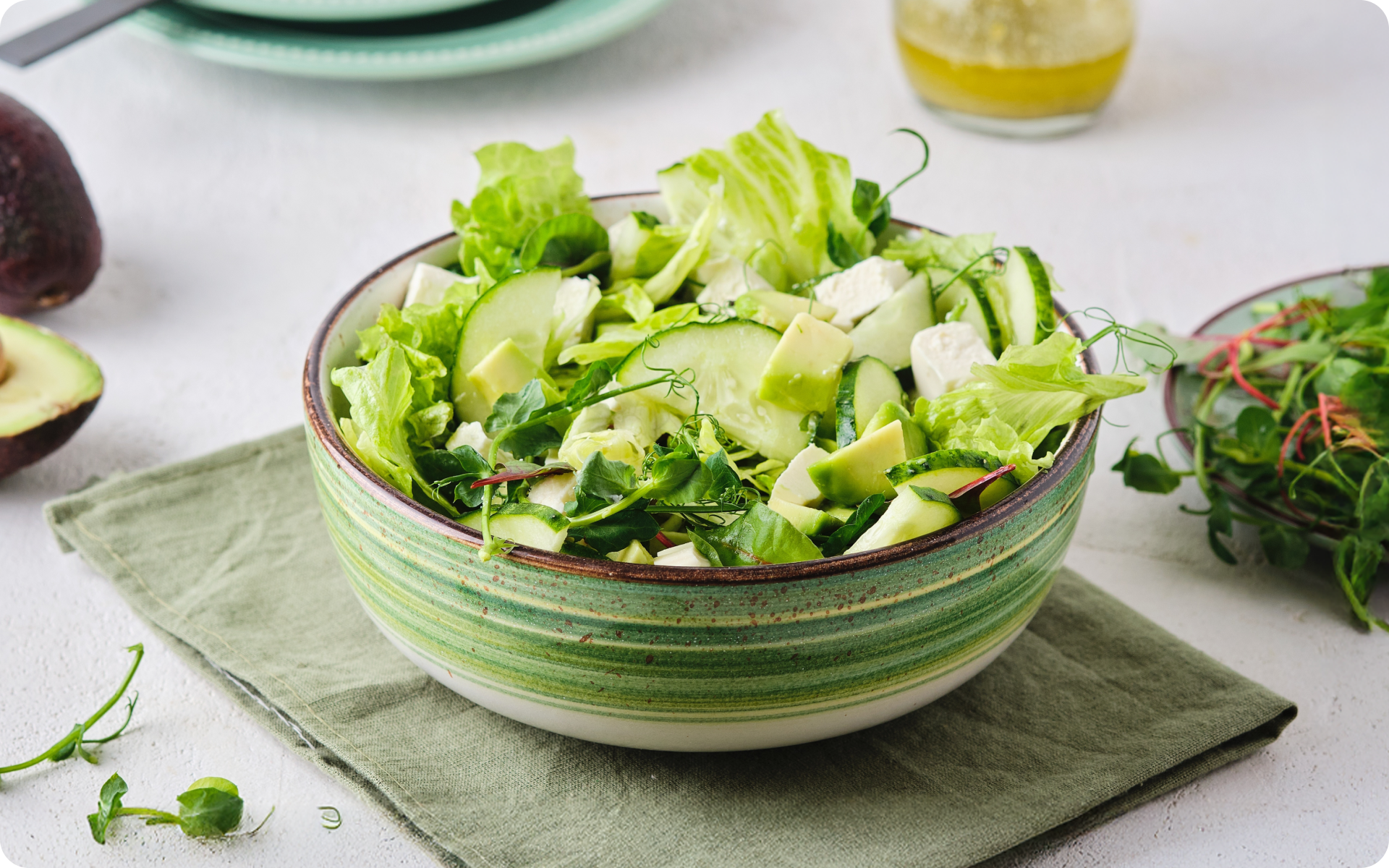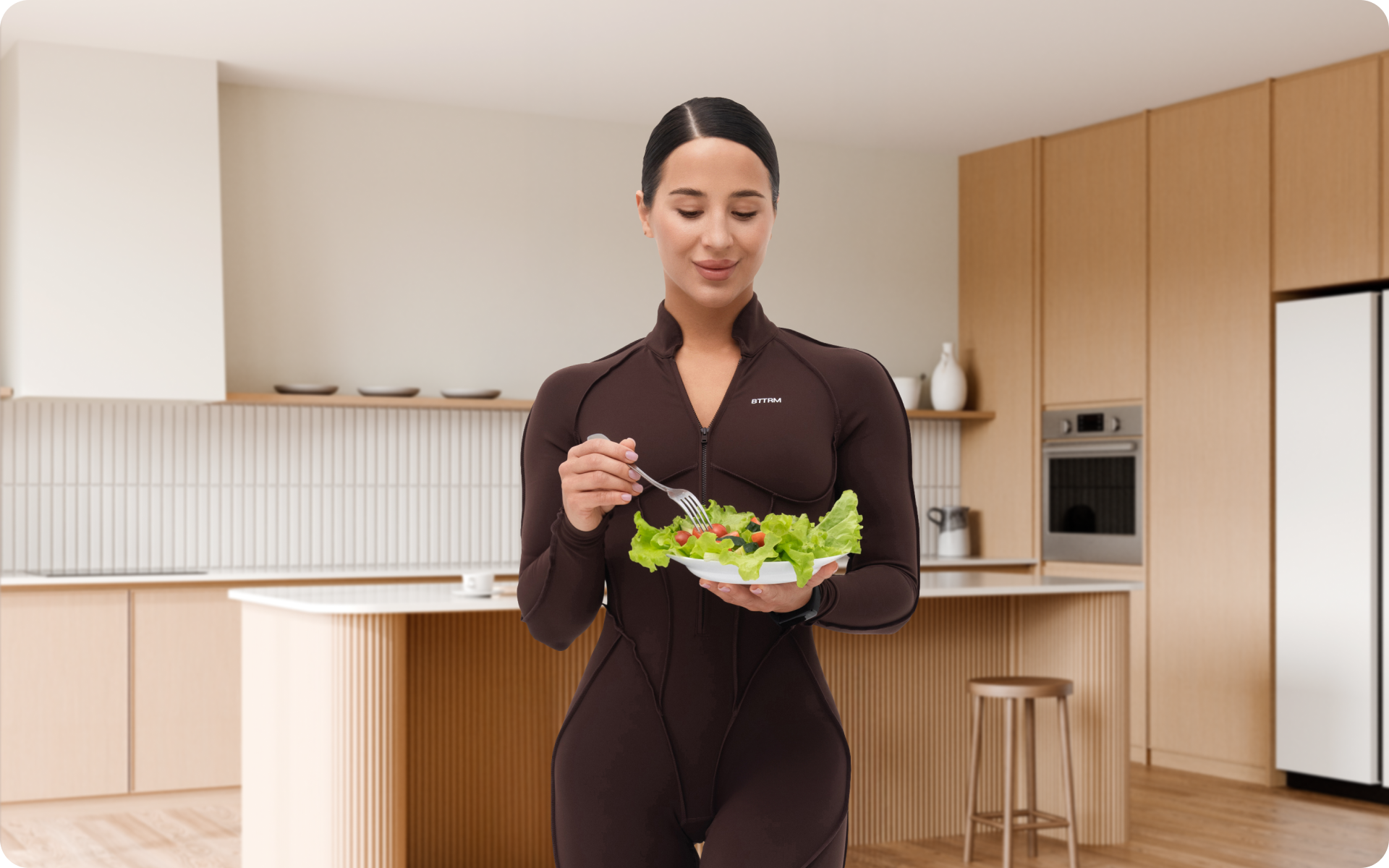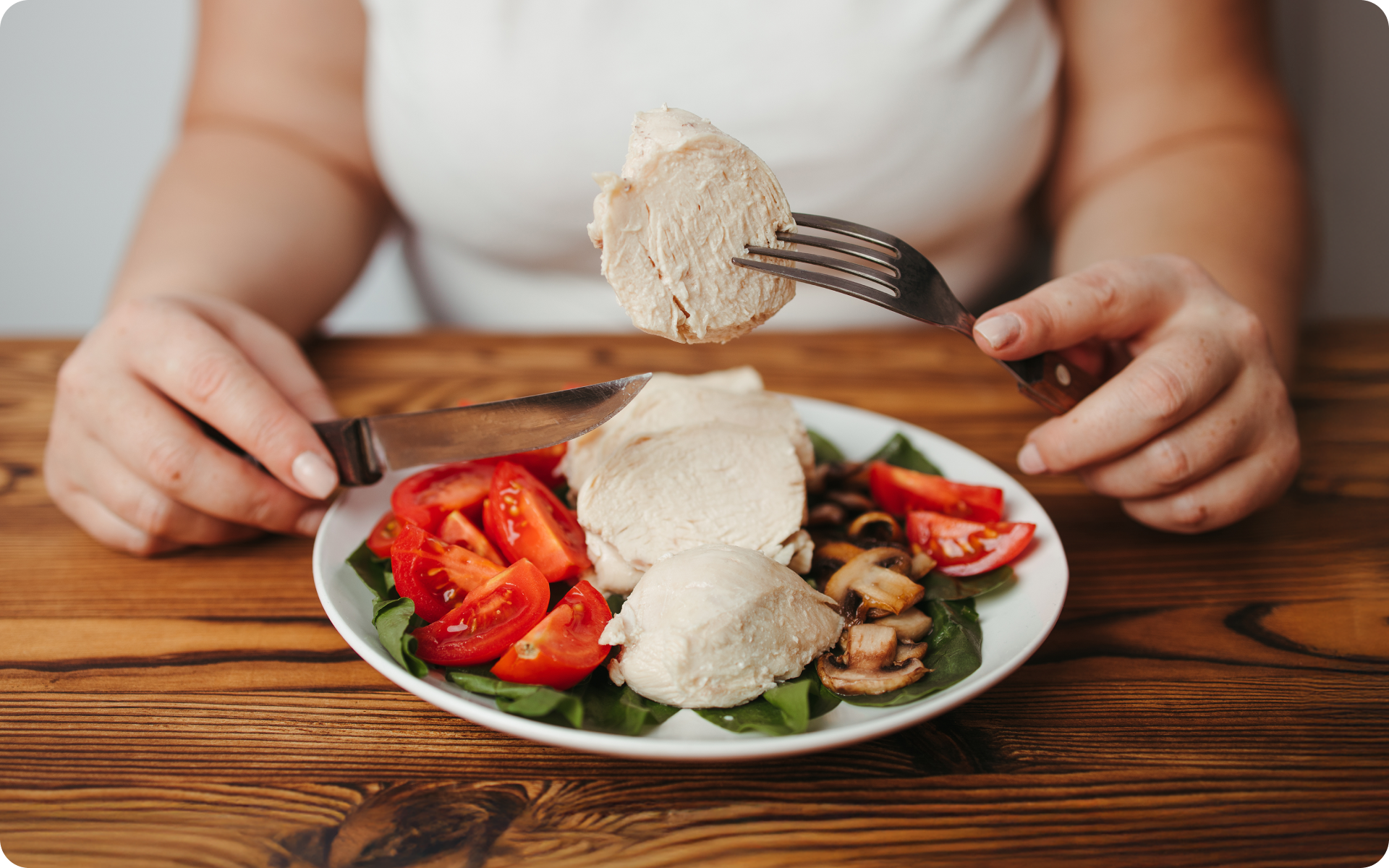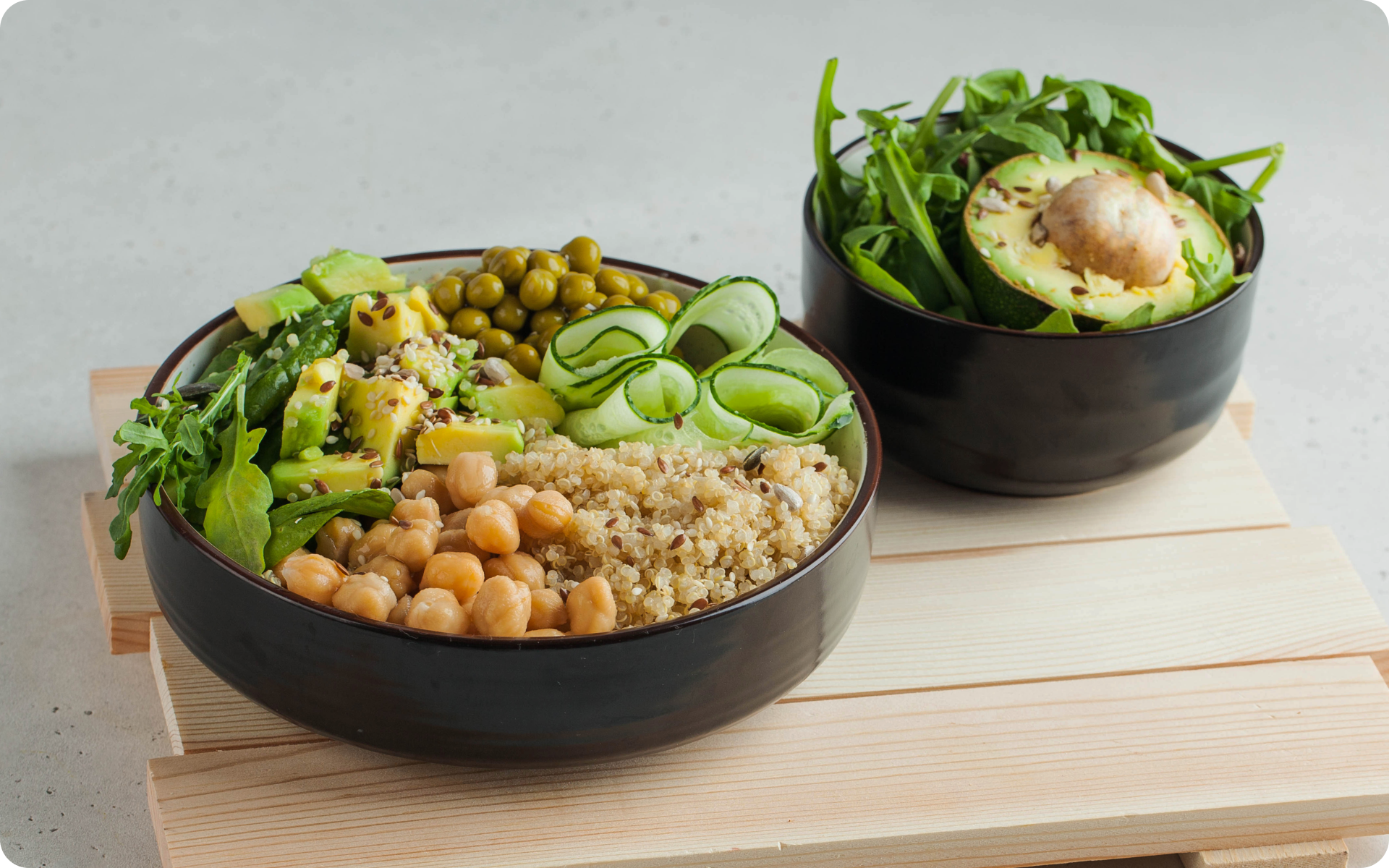The word “diet” has become synonymous with deprivation, restriction, and punishment. It’s no wonder that so many of us have a difficult relationship with food. We’re constantly being told what we can’t eat, and how much we need to restrict ourselves in order to be healthy and happy. It’s time to break free from the diet culture and start healing your relationship with food. This guide will show you just how to do that. You’ll learn about the harmful effects of dieting, why restriction doesn’t work, and how to start making peace with food. You’ll also get practical tips and tools for ditching diets forever, and creating a healthy and sustainable relationship with food. So if you’re ready to break free from the diet cycle and start living a happier and healthier life, this guide is for you. Let’s get started!
Get your personalized
meal plan!
What’s The Problem With Diet Culture?
Diet culture is the set of beliefs and practices that promote thinness and weight loss as the ultimate goal of good health. This culture is harmful for several reasons.
Obsession With Weight Over Body Composition
First, diet culture is built on the false premise that thinness equals health. This simply isn’t true. There are plenty of thin people who are metabolically unhealthy, and plenty of plus-size people who are metabolically healthy.
Diet culture fixates on weight loss, but the number on the scale doesn’t tell us anything about our overall health. A more accurate measure of health is body composition, which takes into account factors like muscle mass, fat mass, and water weight.
Having a high body fat percentage is linked to an increased risk of chronic diseases like heart disease, type 2 diabetes, and certain types of cancer (5). Certain types or locations of body fat are considered to be more harmful than others.
Conversely, having a low body fat percentage can also be harmful. This is especially true for women, who need a certain amount of body fat to maintain their menstrual cycle and reproductive health (3). Being underweight can make it more difficult to recover from illness or injury, and overall may be more dangerous to a person’s health and longevity than being overweight.
Restriction And Deprivation
Diet culture is built on the idea of restriction and deprivation.
We’re told that we must give up certain foods, eat less of others, and constantly monitor our intake. This not only leads to feelings of deprivation and anxiety around food, but it can also lead to unhealthy behaviors like binging and purging (6).
Unsustainability
Diets are generally unsustainable. They’re not meant to be followed long-term, which means that most people who start diets will eventually regain the weight they lost (and often more). This yo-yo dieting can have serious negative effects on our physical and mental health.
Not Accounting For Mental And Emotional Health
Diet culture overlooks mental and emotional health. We’re told that we need to fix our “bad” eating habits, but we’re not given any tools or resources to deal with the underlying issues that may be causing those habits. This can lead to a further decline in mental and emotional health.
One-Size-Fits-All Approach
Finally, diet culture doesn’t take into account the fact that everyone is different. We’re all built differently, we have different body shapes, genetic factors, and we have different preferences. What works for one person may not work for another.
Read More: Anti Inflammatory Diet Plan: What Does It Entail And How Do You Get Started? Easy Beginner Guide!
The Harmful Effects Of Dieting
Dieting is often touted as a healthy way to lose weight, but the truth is that it can be extremely harmful. Dieting can often lead to weight gain, not weight loss. It can also cause other problems like disordered eating, body dysmorphia, and malnutrition (2).
Weight Gain
One of the most common side effects of dieting is weight gain (2). This is because diets are often restrictive and unrealistic, which may lead to binging where you consume more calories.
Furthermore, when we restrict our food intake, our bodies go into survival mode and hold onto the fat stores. This can lead to weight gain, even when we’re eating less.
Disordered Eating
Dieting can also lead to disordered eating behaviors like binging, purging, and restrictive eating. These behaviors can be harmful to our physical and mental health (6).
Malnutrition
Some diets such as crash diets or very low-calorie diets can lead to malnutrition. This is because they don’t provide the body with the nutrients it needs to function properly. Malnutrition can cause a number of problems like fatigue, weakness, and even organ damage (4).
Low Self-Esteem
Dieting can also lead to low self-esteem. This is because we often judge our worth based on our weight or how well we’re doing with our diet. If we don’t meet our weight loss goals, we can feel like failures. Dieting can also make us fixate on our flaws and obsess over our appearance (1).
Now that we’ve looked at some of the harmful effects of dieting, let’s explore some alternative approaches to health and wellness.
What Is Anti-Diet Culture?
Anti-diet culture is a social movement that seeks to challenge the diet industry and promote body positivity. It’s based on the idea that dieting is harmful, that everyone is beautiful just the way they are, and that we should focus on health, not weight.
The anti-diet culture movement has grown in recent years, thanks in part to those promoting it on social media. More and more people are speaking out against diet culture and sharing their own stories of recovery.
Anti-diet culture is about more than just challenging the diet industry. It’s also about promoting body positivity, self-love, and inclusivity. It’s about accepting that everyone is different and that there is no one “right” way to look or be.
BetterMe app is a foolproof way to go from zero to a weight loss hero in a safe and sustainable way! What are you waiting for? Start transforming your body now!
Intuitive Eating Is The Anti-Diet
Intuitive eating is an approach to health that rejects diet culture and promotes listening to your body. It’s based on the idea that the human body is designed to know how to eat and a diet is not necessary.
Rather than following a set of rules or restrictions, intuitive eaters focus on listening to their bodies. They eat when they’re hungry and stop when they’re full. They eat the foods they enjoy, without guilt or shame.
Intuitive eating is about more than just food. It’s also about developing a healthy relationship with your body. Intuitive eaters accept their bodies just the way they are and make peace with their imperfections.
If you’ve been wondering, “how do you break up with diet culture”, then the answer is intuitive eating!
Follow these 10 intuitive eating principles is a great way to start.
1. Reject The Diet Mentality
The idea of quick, easy, and painless weight loss is a diet industry myth. Diets don’t work in the long-term and they can be harmful to your health (4). Extinguish any hopes of finding that magic diet pill or miracle weight loss solution.
2. Honor Your Hunger
Food is fuel that your body needs. Hunger cues like a growling stomach or low energy levels are your body’s way of telling you that it needs nourishment. Don’t wait until you’re “starving” to eat, or you may be more likely to overeat.
3. Remove The “Good” And “Bad” Labels From Food
For many of us, food has become the enemy. We see certain foods as “good” or “bad.” We label foods as “healthy” or “unhealthy.” This black-and-white thinking can lead to a negative relationship with food.
The concept of cheat meals or “falling off the wagon” only makes things worse.
4. Challenge The Food Police
The food police are the voices in our head that judge us for what we eat. They tell us we’re “good” or “bad” based on what we’ve eaten. They make us feel guilty and ashamed of our food choices.
Putting an end to the food police starts with recognizing when they’re talking. Once you’re aware of the thoughts, you can start to challenge them. Are they really true? Do they make you feel good or bad?
Read More: Chinese Food Calories: What To Order To Stay In Your Healthy Diet
5. Take Pleasure In Eating
One of the joys of life is food! When we’re so focused on dieting, we often forget to enjoy our meals. We become so fixated on the calorie content or the “healthiness” of a food that we forget to savor it.
Eating should be a pleasurable experience. Make time to sit down and enjoy your meals. Savor the flavors, textures, and aromas. Pay attention to how the food makes you feel. By doing so, you’ll be more likely to be satisfied and less likely to overeat.
6. Honor Your Fullness
Another principle of intuitive eating is honoring your fullness. This means stopping when you’re satisfied, not stuffed. It’s about listening to your body’s cues and giving yourself permission to stop eating when you’re no longer hungry.
7. Watch Out For Emotional Eating
The next principle of intuitive eating is honoring your feelings without using food. This means finding other ways to cope with your emotions instead of using food as a crutch. It’s about being mindful of why you’re eating and making sure that you’re not using food to numb your feelings.
8. Honor Your Body
This means accepting your body as it is and refusing to buy into the diet culture’s message that you need to lose weight to be healthy.
It’s about loving and caring for your body, no matter what size or shape it is. This doesn’t mean that you can’t strive to be healthy, but it does mean that you aren’t overly critical of your body.
9. Move More For Fun
One of the principles of intuitive eating is moving your body for the joy of it, not for weight loss. This means choosing forms of exercise that you enjoy and that make you feel good. It’s about finding ways to be active that don’t feel like a chore.
10. Honor Your Health
The final principle of intuitive eating is honoring your health. This means making food choices that are good for your physical and mental health. It’s about listening to your body and giving it the nutrients it needs to function properly.
While you’re at it, you’ll focus on progress over perfection. Eating one snack won’t ruin your health. It’s what you eat consistently over time that matters.
Remember that health is a journey, not a destination. There will be ups and downs, but as long as you’re moving in the right direction, you’re on the path to success.
Intense sweat sessions, working weight loss tips, lip-smacking recipes come in one package with the BetterMe app. And all of it is at your fingertips, start transforming your life now!
The Health At Every Size Approach
Health at every size (HAES) is an alternative approach to health that focuses on developing a healthy lifestyle, rather than trying to change your weight. The HAES approach recognizes that everyone is different and that there is no one “ideal” weight.
Instead of trying to lose weight, HAES advocates focus on developing healthy habits like eating nutritious foods, being active, and managing stress. The goal is to improve your health, regardless of your weight.
The Bottom Line
Dieting is harmful and can lead to a number of problems like weight gain, disordered eating, and low self-esteem. Diet culture is also harmful, as it promotes unrealistic standards of beauty and perpetuates the idea that thinness is the only way to be healthy.
Fortunately, there are alternative approaches to health and wellness that focus on body positivity, self-love, and inclusivity. Intuitive eating and the health at every size approach are two of the most popular alternatives to diet culture.
If you’re ready to break free from dieting and make peace with your body, these approaches might be right for you. Talk to a registered dietitian who specializes in intuitive eating and/or HAES to learn more.
DISCLAIMER:
This article is intended for general informational purposes only and does not serve to address individual circumstances. It is not a substitute for professional advice or help and should not be relied on for making any kind of decision-making. Any action taken as a direct or indirect result of the information in this article is entirely at your own risk and is your sole responsibility.
BetterMe, its content staff, and its medical advisors accept no responsibility for inaccuracies, errors, misstatements, inconsistencies, or omissions and specifically disclaim any liability, loss or risk, personal, professional or otherwise, which may be incurred as a consequence, directly or indirectly, of the use and/or application of any content.
You should always seek the advice of your physician or other qualified health provider with any questions you may have regarding a medical condition or your specific situation. Never disregard professional medical advice or delay seeking it because of BetterMe content. If you suspect or think you may have a medical emergency, call your doctor.
SOURCES:
- An investigation of the influence of dieting and self-esteem on dietary disinhibition (1993, pubmed.gov)
- Dangers of Dieting: Why Dieting Can Be Harmful (2021, lindnercentreofhope.org)
- Effects of weight loss intervention on body composition and blood pressure among overweight and obese women: findings from the MyBFF@home study (2018, nih.gov)
- Fad Diets: Lifestyle Promises and Health Challenges (2016, researchgate.net)
- Human body composition and the epidemiology of chronic disease (1995, pubmed.gov)
- The Biology of Binge Eating (2009, nih.gov)
